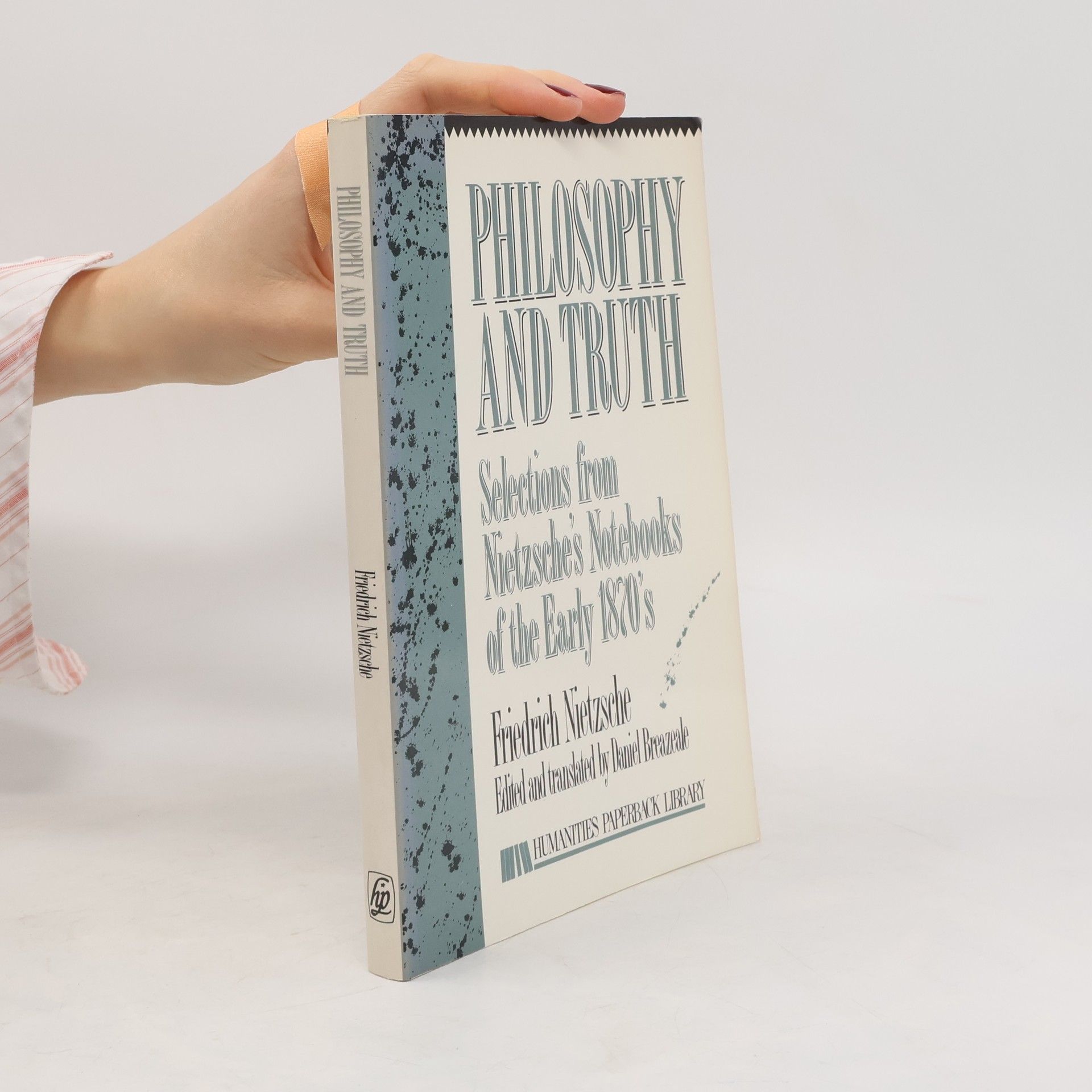Philosophy and Truth offers the first English translation of six unpublished theoretical studies (sometimes referred to as Nietzsche's "Philosopher's Book") written just after the publication of The Birth of Tragedy and simultaneously with Untimely Meditations. In addition to the texts themselves, which probe epistemological problems on philosophy's relation to art and culture, this book contains a lengthy introduction that provides the biographical and philological information necessary for understanding these often fragmentary texts. The introduction also includes a helpful discussion of Nietzsche's early views concerning culture, knowledge, philosophy, and the Greeks.
Daniel Breazeale Bücher
